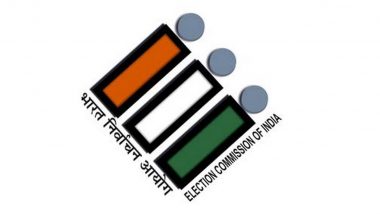New Delhi, August 5: The Lok Sabha on Monday passed the much-awaited Surrogacy (Regulation) Bill, 2019 in Parliament. The Bill was introduced by Union Minister of Health and Family Welfare Dr Harsh Vardhan in the Lower House on July 15, allowing a woman to hand over the child after the birth to the intending couple.
According to this bill, though commercial surrogacy is prohibited, altruistic surrogacy has been allowed. The Bill further mentions that the intending couple should have a ‘certificate of essentiality’ and a ‘certificate of eligibility’ issued by the appropriate authority for adopting a child through altruistic surrogacy. Surrogacy Regulation Bill 2016: What is Surrogacy? A Guide To Understanding The Surrogate Birth Procedure
Here's all the details what the Bill says:
1: The Surrogacy (Regulation) Bill, 2019 defines surrogacy as a practice where a woman gives birth to a child for an eligible couple and agrees to hand over the child after the birth to them.
2: It proposes a woman - giving birth to a child for an intending couple - shall take no monetary compensation (altruistic surrogacy) other than the medical expenses and insurance coverage during the pregnancy. Commercial surrogacy is prohibited under the Bill.
3: The Bill states that the couple intending to commission a surrogacy arrangement must be a close relative of the surrogate mother.
4: Among other provisions, the Bills states that a couple has to fulfill certain conditions:
a): They are Indian citizens who have been married for at least five years.
b): They are in the age group of 23-50 years (female partner) and 26-55 years (male partner).
c): A medical certificate stating that either or both partners are infertile;
d): They do not have any surviving child (whether biological, adopted or surrogate), except if the surviving child is mentally or physically challenged or suffers from a fatal illness.
e): A court order concerning the parentage and custody of the child to be born through surrogacy.
f): Insurance coverage for the surrogate mother.
5): For a surrogate mother, the conditions include:
a): She was or is married and has a child of her own.
b): She is from 25 to 35 years old.
c): She has not been a surrogate mother before.
d): She possesses a medical certificate of her fitness for surrogacy.
6): The Bill also proposed that any child born out of a surrogacy procedure shall be the biological child of the intending couple and will be entitled to all rights and privileges that are available to a natural child.
7): The Bill states that the intending couple and the surrogate mother can undergo a surrogacy procedure only at surrogacy clinics that are registered with the government.
8): Punishment: The Bill proposes punishment with imprisonment for a minimum term of five years and a fine that may extend to five lakh rupees for any person who takes the aid of a doctor or a surrogacy clinic in order to conduct commercial surrogacy.
9): Along with this, the Bill also proposes a penalty of a minimum penalty of 10 years and a fine up to 10 lakh rupees for offences under:
a): Undertaking or advertising commercial surrogacy.
b): Exploiting or abandoning the surrogate mother or child.
c): Selling or importing human embryo or gametes for surrogacy.
(Note: Data collected from PRS and various other sources)
(The above story first appeared on LatestLY on Aug 05, 2019 07:10 PM IST. For more news and updates on politics, world, sports, entertainment and lifestyle, log on to our website latestly.com).













 Quickly
Quickly




















